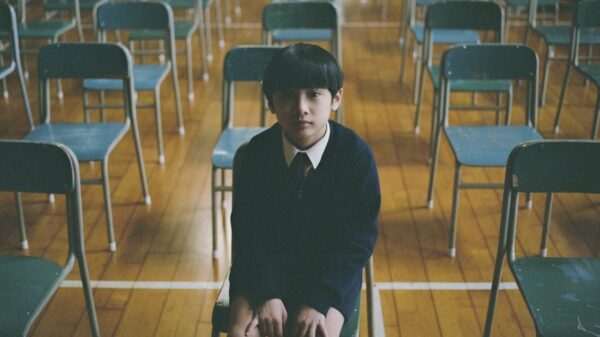Roar writer Elena Veris Reynolds discusses the “tortured artist” trope, and the changes needed to be made in the mental health care system to put an end to the glamorisation of suicide.
I recently finished reading Touching From A Distance, the thoughtful biography of Joy Division’s lead singer Ian Curtis, written by his widow Deborah. As many know, Curtis suffered from both epilepsy and depression, and in 1980 he committed suicide the night before Joy Division’s first US tour. To many, his suicide came as a complete surprise; like many who are depressed, he was surprisingly good at hiding it, and it is all too easy – with the benefit of hindsight – to see the signs in Curtis’ lyrics and behaviour. His wild movements on stage that were so revered in fact mirrored and replicated the epileptic fits he had at home, which, as Deborah Curtis reveals, were deeply linked to his mental state. His suicide attempt, just a few weeks prior to his actual death, should have jolted the care system into action, but instead Curtis was sent home after spending only one night in hospital, deemed not a threat to himself, and with only a handful of follow-up appointments.
The same system that failed Curtis in 1980 would also fail a young British playwright Sarah Kane, who met the same fate in 1999. She was staying at King’s College Hospital, having made an attempt two days prior, and was not identified as a high-risk patient, so was left alone during the night. Kane was known for the scandal she caused when her first play, Blasted, premiered at the Royal Court Theatre Upstairs in 1995, and the explicit violence and shocking themes of the play put her at the forefront of the confrontational ‘in-yer-face’ British theatre movement. Perhaps her most famous work now is the last play she wrote before she died, 4.48 Psychosis. It is an experimental work that does away with traditional theatrical form, containing no characters or stage directions.
I first read 4.48 Psychosis a few years ago, as I was intrigued by Kane’s life, work and original approach to theatre. After finishing Touching From A Distance, I revisited it again. The play is much more than a “75-minute suicide note,†as some critics at the time described it. It is a deeply moving, raw and unfiltered look inside a depressed mind, that challenges many of the assumptions and stereotypes surrounding suicidal ideation. Her friend, David Greig, was quoted after her death as saying she never wrote because of her depression, but in spite of it.
Both Curtis and Kane perfectly fit the model of the tortured artist. Both were incredibly young when they died, and they broke boundaries through creating painful, extreme and dark works. They are but two in a list of many in the artistic world who have met a similar fate, and the problem hasn’t got any better in the twenty years since Kane’s death. Both of them have been somewhat mythologised because of their suicide, as if their art is somehow better or more striking because of it. Both of them were also failed by a health care system that should have looked after them.
In 4.48 Psychosis, there is a scene, likely based on Kane’s own experiences, in which someone tries to convince the main character they should go on anti-depressants. The character resists by claiming: “I won’t be able to think. I won’t be able to work.†This assertion reveals a lot about the effect of the tortured artist trope and how it is often internalised. The depressed character is fine with being depressed, even suicidal, as long as they can still write and produce their work; their suffering is excused for their art. This is continually perpetuated by others inside and outside of the industry and by the capitalistic nature of the creative world itself, which will sacrifice anything – including someone’s wellbeing – for art. The product comes before the person.
Deborah Curtis tells of how, from a young age, Ian Curtis had often talked about not wanting to live past his mid-twenties. But we must not fall into the dangerous yet common trap of thinking his or Kane’s deaths were inevitable. In fact, they were highly preventable. It will take systemic change that addresses the root causes that worsen mental health problems. It will take a truly accessible and comprehensive mental health care system. It will take an overturning of how our culture views suicide, especially within creatives, and of the capitalistic nature of our creative industries that often exploit those who most need support. It will take all of us, and it will take care. But no one’s suicide is inevitable.



















